The graduate in Reproductive Biotechnologies has a detailed and updated knowledge on the structure and function of gametes, on the mechanisms that govern their interaction and that guide the process of fertilization and embryonic development. The student acquires, through direct laboratory experience focused on the basic and advanced methods of reproductive biotechnology, in-depth theoretical and practical training. At the same time, the student knows and can carry out the main and most modern analytical evaluation approaches in the morphological-functional, biochemical, molecular biological and genetic fields, using them for the specific study of gametes, embryos or tissues of the reproductive system (ovary, placenta, testicle).
All the methods and techniques studied are contextualized to assisted reproduction procedures, whether they are applied for commercial purposes, as in the zootechnical field, or for diagnostic-therapeutic purposes, as in human medicine.
The training course addresses the issues of reproduction with a comparative and multidisciplinary approach. During the course, extensive use is made of the animal model but, integrating the skills of the University of Chieti-Pescara and making use of qualified experts who operate in the field of human reproduction both in public and private structures, the knowledge and methodologies learned on gametes, embryos and animal tissues are always linked to the service activities of reproductive medicine, to diagnostic practices related to the control and evaluation of fertility as well as to medically assisted procreation techniques.
The student's curricular training is integrated with specific internships, organized by the course at public and private centers operating in Italy in the field of reproduction with high levels of qualification.
The student's training is also completed by knowledge of the national and international regulatory framework within which reproductive biotechnologies operate, whether they are used for commercial/zootechnical purposes or in contexts such as medically assisted procreation or in the research sector. The course intends to provide specific training relating to bioethical aspects and directs specific teaching activities towards the deepening of fundamental knowledge in the various fields of communication and information sciences. The application of scientific information management methods is addressed both to professional fields and to broader social contexts with informative/popular purposes.
The student, combining in-depth theoretical knowledge with his ability to carry out the methods specific to reproductive biotechnology, when he approaches the conclusion of his training path has the tools to plan experimental in-depth studies about reproductive biology, operating in scope of the research structures of the two universities and of affiliated public and private centers. The internship activity aimed at producing an experimental thesis can also be carried out at foreign universities in which study courses consistent with the training project of the Degree Program are active and with which the Degree Program enters into bilateral agreements aimed at strengthening transnational mobility of students/teachers. This possibility will become particularly important from the perspective of the internationalization process of the Course, which among the short-term initiatives includes the strengthening of Erasmus mobility programs, with the dual objective of improving the technical-scientific knowledge and personal skills of its students and future graduates and at the same time to contribute to encouraging academic collaboration and cooperation between nations.
In the short term, it is intended to start an educational collaboration with the Master "Biology and Technology of Reproduction" active at the University of Murcia, developed within the Department of Veterinary Medicine and with which contacts have already been activated for a few years with some teachers with research and training collaborations. The Master's training path has clear similarities with that of the CdS in "Reproductive Biotechnologies" at the University of Teramo and pays particular attention to the knowledge of the biology of reproduction in various animal species, also used as models for humans.
The strengthening of the student/teacher exchange agreements existing so far in the Department of Veterinary Medicine of the University of Teramo as part of Erasmus programme, following the identification of foreign courses with training projects and contents similar to the CdS in Reproductive Biotechnologies, such as the Master of the University of Murcia or similar ones, as well as the development of further bilateral agreements also stipulated with research centers and companies for the exchange of students and teachers within the Erasmus+ program, will most likely allow an increase in the number of students involved in transnational mobility programs, expanding the internationalization process undertaken.
This will guarantee an improvement in the quality of education/training and research, and at the same time increase the employment prospects of graduates of the Course.
Students who graduate in Reproductive Biotechnologies can subsequently find employment in specific training courses, advanced training, and specialization active at one of the reference universities of the course or at other universities, Italian or foreign. At the University of Teramo, from the 19th cycle to the 25th cycle, a PhD in 'Reproductive Biotechnology' was active, which carried out its advanced training course in agreement with the Universities of L'Aquila, Roma Tor Vergata and Bologna and two private centers operating in the sector of animal reproduction (“SEMEN Italy”/new name “INSEMEN” - Modena) and reproductive medicine (“SISMeR” - Bologna); starting from the XXVI cycle, the PhD in "Molecular and cellular biotechnologies" is active, created in consortium with the University of L'Aquila.
 Masters
Masters
 Region
Region
 Vocational Training
Vocational Training
 Programme Catalogue
Programme Catalogue
 Programme Catalogue - A.Y. 2013/2014
Programme Catalogue - A.Y. 2013/2014
 Political Science - 2013/2014
Political Science - 2013/2014
 Erasmus+ Incoming students/staff
Erasmus+ Incoming students/staff
 Corsi di studio
Corsi di studio
 Reproductive Biotechnologies
Reproductive Biotechnologies
 Specific training objectives - Reproductive Biotechnologies
Specific training objectives - Reproductive Biotechnologies
